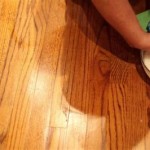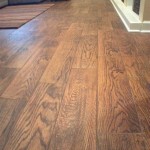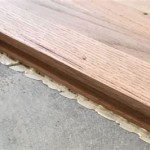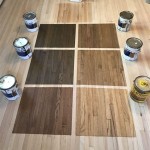Hardwood Floor Wood Hardness Scale
The Janka Hardness Test is an industry-standard method for measuring the hardness of wood. It measures the force (in pounds) required to embed a 0.444-inch steel ball into the wood to half its diameter. Higher numbers indicate harder wood species.
Hardness is a crucial factor to consider when choosing hardwood flooring. Harder woods are more resistant to dents, scratches, and wear. They are ideal for high-traffic areas, such as living rooms and hallways. Softer woods, on the other hand, are more susceptible to damage and may be better suited for low-traffic areas, such as bedrooms.
Here is a general guide to the Janka Hardness Scale for common hardwood species used in flooring:
- Very hard (over 1500): Ipe, Brazilian walnut, santos mahogany, tigerwood, jatoba, and hickory
- Hard (1000-1500): Oak, maple, ash, birch, and cherry
- Medium (700-1000): Mahogany, walnut, pine, and fir
- Soft (below 700): Cedar, cypress, and redwood
In addition to the Janka Hardness Test, other factors can affect the durability of hardwood flooring. These include the stability of the wood, its grain pattern, and the finish applied to the surface.
It's essential to consult with a flooring professional to determine which wood species and finish are best suited for your specific needs and lifestyle.
Factors to Consider When Choosing a Wood Hardness
When selecting a hardwood flooring based on hardness, it's important to consider several factors:- Traffic: High-traffic areas, such as living rooms and hallways, require harder woods to withstand daily wear and tear.
- Footwear: Wearing high heels or heavy shoes can increase impact on the floor. Consider harder woods if you anticipate frequent use of such footwear.
- Pets: Pets' claws can scratch and dent wood floors. Harder woods are more resistant to damage caused by pets.
- Furniture: Heavy furniture can leave dents on softer woods. Consider harder woods if you plan to move furniture frequently or use heavy pieces.
Conclusion
The Janka Hardness Scale is a valuable tool for assessing the hardness of hardwood flooring species. By understanding the hardness of different woods, you can make an informed decision about which type is best suited for your needs. Remember to consider additional factors, such as stability, grain pattern, finish, and lifestyle, to ensure you choose the ideal flooring for your home.
Essential Guide To Hardwood Floor Hardness Flooring S

Janka Hardness Scale Impressions Flooring Collection

Hardwood Rating System And Why It Is Important In Dallas Fort Worth Tx All American Flooring

Janka Scale A Step Above Flooring Installation Inc

The Janka Scale Blog Kt Hardwoods Inc

What Is Janka Hardness And Why Does It Matter Anthology Woods

Janka Wood Flooring Hardness Chart

Hardwood Hardness Ratings Woodchuck Flooring San Diego

Wood Hardness Chart Bh Hardwood Floors

The Amazing Janka Hardness Test Impressions Flooring Collection







